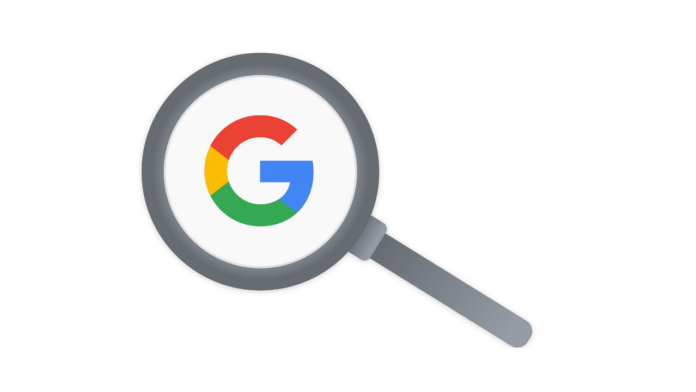In the ever-evolving landscape of digital information, the recent integration by Google of its AI Search Generative Experience into its search engine has sparked a significant backlash from news publishers worldwide. Why is that happening and how has Google responded to the backlash from the publishers? Here’s what you need to know.
Google AI Search: Reason Behind The Backlash
Google’s AI search integration, dubbed the Search Generative Experience, was rolled out in May 2024, starting in the United States with plans for global expansion. The AI model is designed to provide concise, direct answers to user queries by summarizing information across the web. While this may increase efficiency for users, it reduces the likelihood of clicking through to actual news sites, traditionally a primary source of in-depth information.
The integration of Gemini has LED to an outcry among publishers. They fear that as Google’s AI provides direct answers, users may bypass traditional news links, further eroding traffic and reducing exposure to ads, which are vital for their revenue.
Moreover, Google often doesn’t credit the website the AI search results has been fetched from. Danielle Coffey, CEO of the News/Media Alliance, has expressed deep concerns regarding the sustainability of their business models in light of these changes.
Google AI Search: Implications On Publishers
Publishers are already grappling with diminishing web traffic and ad revenue. With the AI search integration, prominent voices in the industry predict a further decline in traffic by 20% to 40%. A Wall Street Journal report from last December shows that news outlets are suffering from a dip in traffic from various social media sites, with both Facebook and X moving away from news distribution.
Google’s AI-powered search is on the path to make things worse, as Google generates almost 40% of publishers’ traffic, the report said, citing a WSJ analysis of data from Similarweb. The study showed that if Google integrated AI into search, 75% of the time, the AI-powered search would deliver a complete answer to a user’s question which would lead to the user not going to that particular website for his query, resulting in traffic loss.
This could have a severe fallout for publishers who rely heavily on Google as a primary referrer of web traffic. In addition, there are concerns about whether these summaries constitute plagiarism and how publishers will be compensated for their content being used to train AI models.
The AI integration represents one of the most critical changes to Google’s search engine in its history, affecting billions of searches and potentially altering the internet economy.
Read More: Google Fortifies Data Security in Android, Thwarting Thieves’ Attempts
Google AI Search: Implications On The Search Engine
Last year, Google earned $237.86 billion from digital advertising, according to a Statista report. Publishers use Google Ads for their own advertisements so there’s a high chance the ads you see on the sites you visit are being provided by Google itself. Now, if users stop clicking on the websites to visit them, Google won’t be able to make money off the ads it provides as the users won’t be opening the websites.
However, Google has announced that it will soon start testing Search and Shopping ads in AI Overviews for users in the US. It “will start with a small experiment in the US and take a responsible approach, applying learnings from user, advertiser, and publisher feedback,” the company said in a blog post detailing the new integration of ads within AI search overviews.
Google AI Search: Response From Google Towards The Backlash
In the same blog post, Google said that with AI Overviews, people are visiting a greater diversity of websites for help with more complex questions. It observed that the links included in AI Overviews get more clicks than if the page had appeared as a traditional web listing for that query. The company aslo found that people who use AI Overviews actually use Search more and are more satisfied with their results.
And when people click to links from AI Overviews, these clicks are higher quality, where users are more likely to spend more time on the site. “As we continue to test and evolve the Search experience, we’ll remain focused on sending valuable traffic to publishers and creators”, said the company.
Further, Google noted that there’s no action needed from advertisers: Ads from existing Search, Performance Max, and Standard Shopping campaigns have the opportunity to appear within the AI Overview.
Meanwhile, in an interview with Nilay Patel on The Decoder Podcast, Pichai said that he had expected a reaction from the community as its a significant transition to the AI era. He compared the current situation of publishers’ concerns about potential web traffic loss to the earlier shift from desktop to mobile browsing, where similar worries existed.
He reassured them by emphasizing Google’s commitment to a robust web ecosystem, saying, “Empirically, what we are seeing throughout these years, I think human curiosity is boundless. When people come, and it’s something I think we have deeply understood in search, more than any other company, I think we will differentiate ourselves in our approach even through this transition.”
Pichai still believes that AI Overviews are increasing Search usage and are the next big thing. He called it “one of the most positive changes I’ve seen in Search based on metrics.”
Google is also not willing to show all the data to the publishers which indicates how the users are reaching the website, whether from a featured snippet or an AI Overview or just Google’s regular 10 blue links (via The Verge). Pichai replied to the question by saying, “It’s a good question for the Search team. They think about this at a deeper level than I do.”


